Martha Firestone Ford’s Patience has Run Out
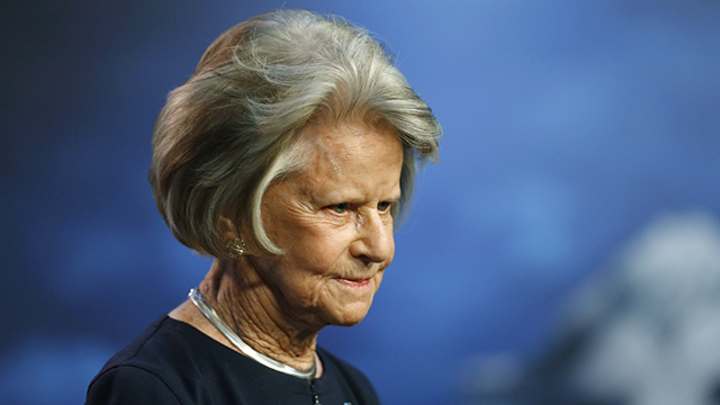
This is the first in a three-part series on the NFL’s “Corridor of Woe”—Detroit, Cleveland and Buffalo, proud franchises suffering through decades of hard times. In each city we’ll look at a pivotal element of team success—owner, coach, quarterback—to see what has gone wrong and what needs to change if these teams are to find the path to a Super Bowl.
DETROIT — On the 30-yard line of Ford Field, one of the most powerful women in the NFL is holding court.
Martha Firestone Ford cuts an unassuming figure. She is the shortest adult in almost any group; a pair of oversized dark glasses obscures her face; she abides by the NFL stadium bag policy by carrying a clear plastic tote printed with her team’s logo (retail: $9.99). But if the past few weeks have made anything clear, it’s that the 90-year-old owner of the Detroit Lions is not to be overlooked.
Mark Davis came over to the Lions sideline to greet her, having been fetched by Sheldon White, Detroit’s interim general manager. Ford then introduced the Raiders’ owner to Rod Wood, the new team president she’d hired three days earlier. During the 90 minutes leading up to kickoff of the Lions’ Week 11 game with the Raiders, they all came to greet her: head coach Jim Caldwell, former quarterback Greg Landry, receiver Golden Tate, who customarily gives her a hug and a kiss on the cheek before every game.
In this building, where she long stood beside her husband, she’s now the boss.
For much of her life, Ford’s public image has been defined by the people around her. Granddaughter of Harvey Firestone, the entrepreneur of the global tire company. Wife to William Clay Ford, Sr., the last grandchild of automotive pioneer Henry Ford, and mother to their four children. But since her husband’s death in March 2014, Ford has alone become the principal owner of the Lions. The decisions about the direction of the franchise rest on her shoulders.
The moves she made last month, firing GM Martin Mayhew and president Tom Lewand, who had been with the Lions for a combined 35 years, left no doubt about how seriously she is taking that responsibility. Her late husband long practiced patience, but when the Lions got off to a 1-7 start in Ford’s second season at the helm, she took action. The team and city are taking notice.
“It’s the look of an owner who wants to win,” says franchise receiver Calvin Johnson.
The Lions haven’t done a lot of winning through the years. Since William Clay Ford, Sr., purchased the team in 1963, Detroit has just 15 winning seasons and a single playoff victory. The frustration that has built up over 52 seasons, those who know Martha Firestone Ford say, has contributed to her boldness this fall. She’s impatient—and perhaps that’s what this franchise needs.
* * *
As the regular season hits its homestretch, we visited three NFL cities where forward progress has long been elusive. Detroit, Buffalo and Cleveland sit along the Rust Belt, and as their economies and populations have shrunk over the last two decades, so too have the hopes of their football teams. The game matters in these cities, but it has been 20 years since any of the three has experienced a postseason win. In each city, the question persists: How do they turn things around?
Martha Firestone Ford wants to be the answer for Detroit. At season’s end, two critical decisions for the direction of the team will rest in her hands: the future of second-year head coach Caldwell, and the hiring of the team’s next general manager.
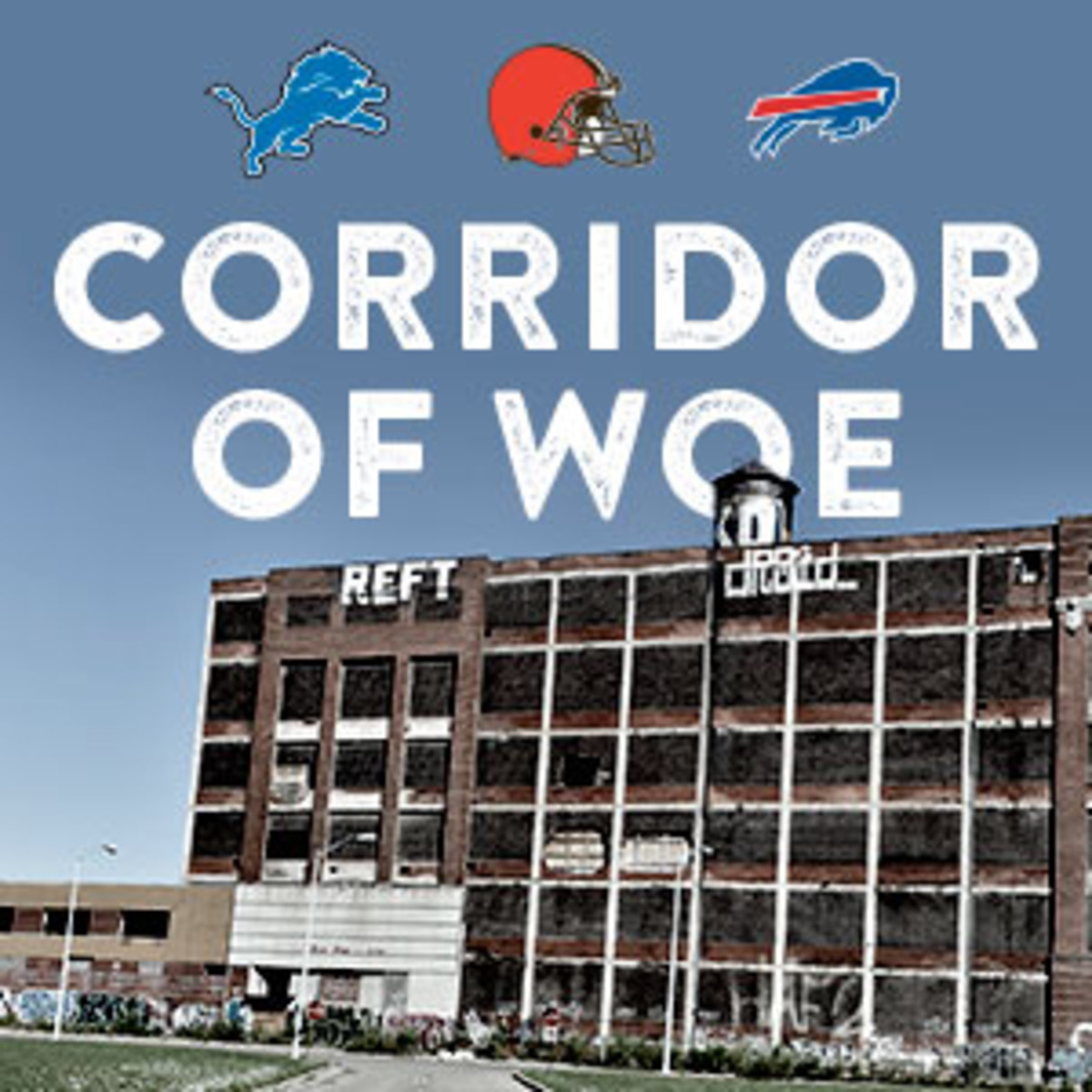
The in-season firings she made, one week after Caldwell also dispatched three coaches, including offensive coordinator Joe Lombardi, turned heads. “Everybody in Detroit was surprised it happened during the season,” Landry says. It particularly sent shock waves through the Lions’ Allen Park facility.
The housecleaning after the 1-7 start opened the eyes of even stars like Johnson, the All-Pro receiver who is in year four of his eight-year, $132 million contract. “When changes happen upstairs, you know that whoever is making those decisions can change up the look of the locker room,” Johnson says.
“There was a sense of unsettlement, I would say, right after all the changes happened,” safety James Ihedigbo says. “Guys were wondering, Where is the direction of the team? Where are we going now? Because leadership comes from the top down.”
They quickly got an answer to those questions. Ford held a press conference to explain the moves, and when the players returned from the bye, she stood up in the team meeting room and spent about 15 minutes explaining her actions to them. She spoke from the heart that day, players said, telling them she had to make tough decisions to change the course of the team and build a winning tradition.
“When I say I’m excited,” says Hanson, the longtime Lions kicker, “I think I should say, I appreciate her lack of patience.”
Ford has tried to stay out of the spotlight—a team spokesman said she is declining all one-on-one interviews—but by standing behind her moves, publicly and privately, she earned credibility. Her late husband was well-liked by players for his kindness and interest in their families (and golf games), but he was perhaps loyal to a fault, slow to make firing decisions, to the frustration of many inside and outside the building. Through his five decades at the helm, he employed only five different general managers, including Matt Millen, whose eight-year tenure yielded a league-low 31 wins; he was fired in September 2008, the first month of the infamous 0-16 season.
“He waited a long time before making the move, when things weren’t working, and that rubbed people the wrong way,” says Jason Hanson, the Lions’ kicker from 1992 to 2012. “What she has done since she has become the chief, the centerpiece of the organization as the leader, has been very aggressive, and I’m very excited about it. When I say excited, I think I should say, I appreciate her lack of patience. Because it backs up how I know the Ford family feels—they want to win, and they are tired of losing.”
It helps that the Lions rattled off three straight wins following Ford’s bye-week shakeups, including the team’s first victory in Green Bay since 1991. But fans in the Motor City, which hasn’t seen a football championship since 1957, are hanging on to their skepticism. The weekend of the Oakland game, the hiring of Wood was fodder for the “same old Lions” rants on local sports talk radio. Ford had said there would be a national search but instead hired inside the family’s inner circle.
Wood, for the last seven years the the CEO of Ford Estates (which provides financial management services to members of the Ford family), made clear he will handle the business side of the organization, not football. Fans have clamored for the Lions to secure outside help to turn the team around, and they have done that by bringing in former Colts, Browns and Giants GM Ernie Accorsi to advise on their general manager hire. But cynicism bred over decades is hard to shake.
“Every year, I ask, should I renew my tickets?” says longtime season-ticket holder Wayne Wrobel, who been attending games with his wife, Debbie, for nearly four decades. “If I don’t, we’ll probably have a good year, but I’ve been saying that for 30-some years. It’s getting to the point, is it worth it? I hope they get it right, but I’m not overly optimistic. They haven’t gotten it right in how many years? We’ve been waiting a long time for a good season.”
* * *
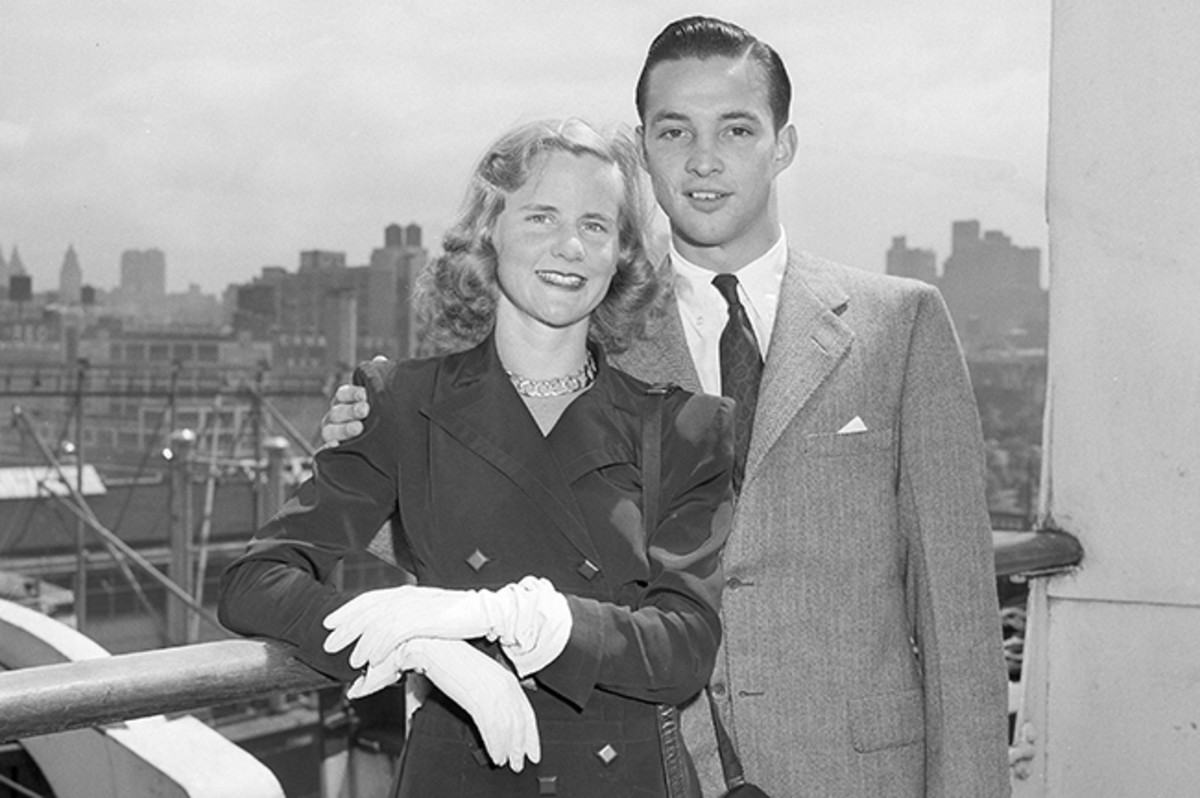
When the Fords first bought the team, Martha spent Sundays at Tiger Stadium with her husband and four kids, the six of them waiting outside the locker room to greet the players as they came off the field. After William Clay Ford, Sr., died of pneumonia in 2014, many assumed their son, Bill Ford Jr., the executive chairman of Ford Motor Company, would be calling the shots.
But Martha “makes all the decisions,” Bill Jr. told Detroit radio station WJR in October. He said he has been less involved in running the team since his father passed away. All four Ford children are vice chairmen of the team, but people around the Lions say daughter Sheila Ford Hamp, their second child, bears the strongest influence on her mother’s decision-making.
The league is still largely an old boys’ club. Only a handful of women currently hold a controlling interest in an NFL team: Chicago’s Virginia Halas McCaskey; Tennessee’s Amy Adams Strunk; Oakland’s Carol Davis, along with son, Mark; San Francisco’s Denise DeBartolo York, along with husband John; and Buffalo’s Kim Pegula, along with husband, Terry. “Martha is not a football girl,” scoffed one Lions season-ticket holder at Ford Field last month.
That’s a lazy characterization, considering that Ford has been around the NFL for more than 50 years (and many professional sports team owners, whether male or female, never played the sport of the team they own). Ford has attended every Lions game since taking the reins, as well as many of the summer practices, greeting each player on the 90-man roster by name. When representing the Lions at the fall NFL meetings, Caldwell said Ford gave league officials “a piece of her mind” over the controversial non-call against the Seahawks for illegally batting the ball out of the end zone at the end of Detroit’s Week 4 loss at Seattle.
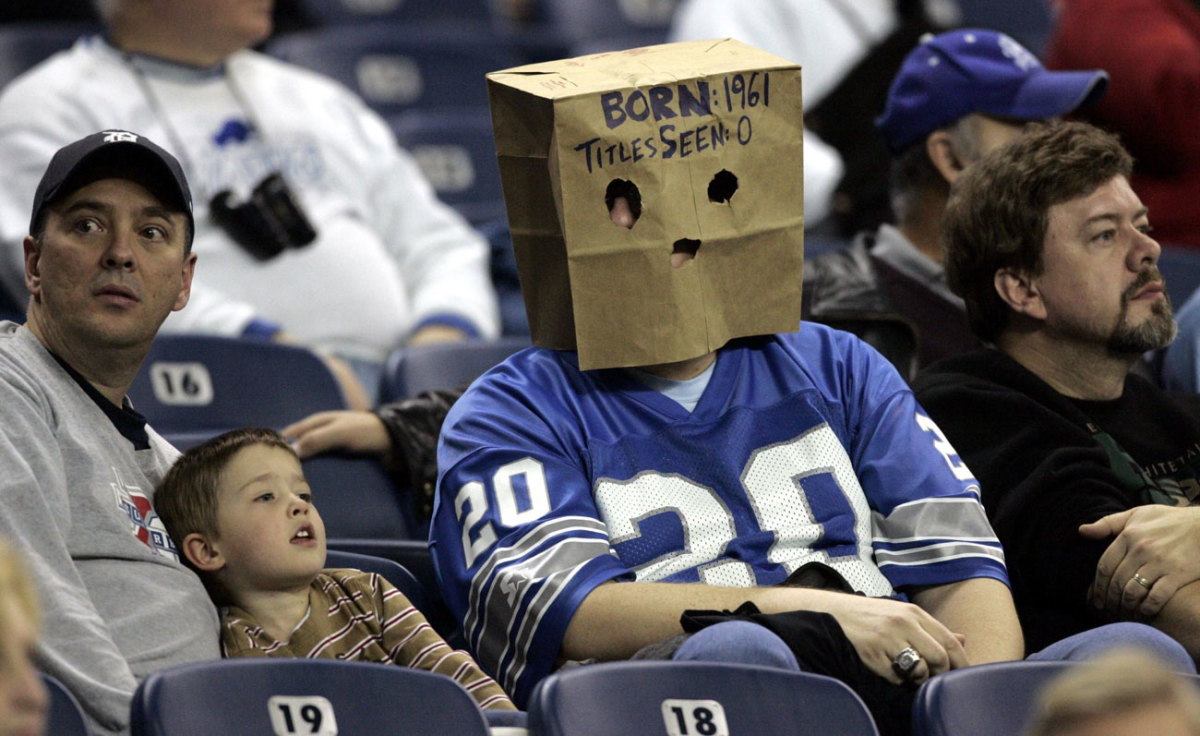
Ford has kept a low public profile, but those who have worked with her describe her as very sharp and a voracious reader. Landry calls her “strong-willed.” She graduated with a bachelor’s degree from Vassar College in 1946, during an era when women were not usually encouraged to attend college. A year later she married William Clay Ford Sr. at St. Paul’s Episcopal Church in her native Akron, Ohio, followed by a reception with 900 invited guests and elaborate gifts from the likes of FBI Director J. Edgar Hoover. The event was covered in society pages across the country, including the Akron Beacon Journal, which reported, “The grandchildren of two of the world’s most fabulous empire builders were man and wife.”
The couple put down roots in Detroit, and as the Lions became part of their family tradition, so too did their involvement in the community. The Fords have long supported the Henry Ford Health System, spearheading in 1981 the creation of the Maplegrove Center, an inpatient and outpatient substance abuse treatment facility, and committing $6 million of their money to establish a “Fund for the Future” research initiative in the 1990s.
Even at age 90, and with her responsibilities heading the Lions, Ford schedules meetings with Henry Ford Health System CEO Nancy Schlichting at Ford’s Grosse Pointe home or over lunch at The Hill Seafood & Chop House nearby. Ford asks for reports on the hospital’s progress and to meet new hires in leadership roles. Few understand the tough decisions Ford had to make earlier this fall as well as Schlichting, who came to Detroit in 1998 and was faced with an urban healthcare system crumbling in step with the city’s population decline. Schlichting laid off 1,500 people, closed three hospitals and reinvested in world-class technologies and physicians, to draw patients from afar. Now, the health system has nearly tripled its revenue and staff over the past decade. Schlichting remembers Ford seeking her out at a reception after the turnaround, telling her warmly, “I never thought Henry Ford Hospital would make money.”
Ford is known for her personal touches. Golden Tate, the wide receiver, was stunned to receive a letter from Ford in the mail this offseason, congratulating him on making the Pro Bowl in his first year with the team. During the holidays the Henry Ford Health System sends its donors a small token of appreciation, like a logo pen or umbrella, and for 17 years and counting Ford has sent Schlichting a handwritten thank-you note. “She made it sound like every umbrella and every pen set was the best gift she ever got,” Schlichting says.
Schlichting recently authored a book, entitled Unconventional Leadership, and in the acknowledgements, thanked the Ford Family, naming Martha among those who “have encouraged me to lead with boldness, but have always had my back during the tough times.” Schlichting held a book signing last month, and was surprised to look up and see Ford waiting in a long line to get her copy signed. They moved her to the front, but Ford wouldn’t have minded waiting like anybody else. Thank you for what you have meant to all of us, Schlichting wrote in her copy.
“Of course she has been the wife of William Clay Ford all these years, but in her own right she is an incredibly smart and talented woman,” Schlichting says. “She has all the gifts to lead, and she is demonstrating that now with the Lions. Believe me, she has been paying attention. And I think she’s enjoying this.”
• WHY DETROIT? How Thanksgiving became a Lions tradition
* * *
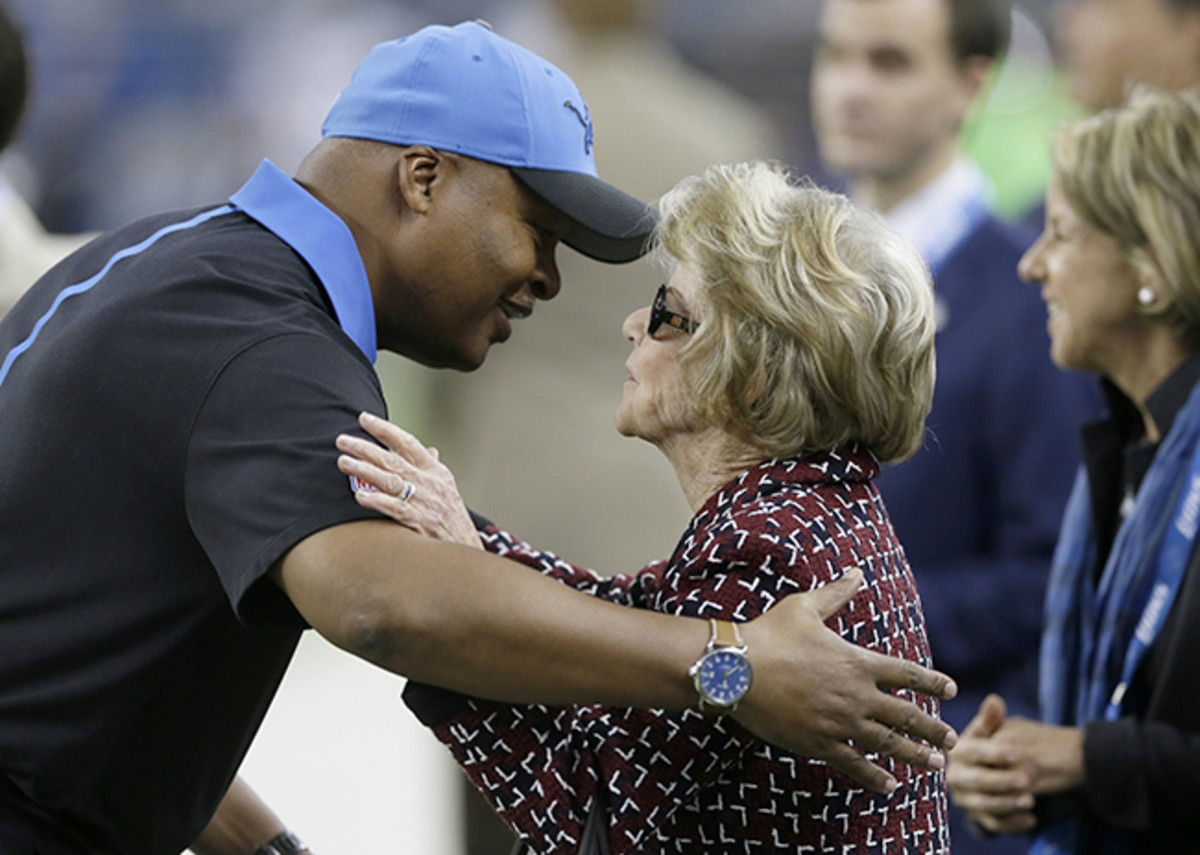
Before the Lions opened the 2014 season on a Monday night, the team held a pregame ceremony honoring William Clay Ford, Sr., six months after his passing. Jason Hanson was among the five former players, one representing each decade of the Ford family’s ownership, on the field.
“We weren’t just a product to him, and of course people are cynical about that, but it really was a good thing,” Hanson says. “That moment was about honoring someone who was genuine and cared about the people who worked for him. No one was worried about what would be different now.”
But in a business judged by wins and losses, it was only a matter of time until the focus shifted to how his widow would run the team. The Lions made the playoffs in 2014 with an 11-5 record, the franchise’s best mark since 1991, the year of the lone playoff win under the Fords. Instead of building on that success, this year’s team stumbled mightily out of the gate. The struggles started up front, with a patchwork offensive line and a vast underestimation of the impact of losing Ndamukong Suh, Nick Fairley and C.J. Mosley from the interior of their defensive line.
“This is not a rebuild,” says Polian. “That 11-5 last season was not a mirage.”
Over the past three weeks, the Lions have looked like a different team in wins over Green Bay, Oakland and Philadelphia. Matthew Stafford looks better when he can throw deep to Calvin Johnson, and defensive end Ziggy Ansah ranks behind only J.J. Watt with 11.5 sacks. The improved play of key roster pieces is a reminder that the Lions should be able to hire a top GM candidate.
“This is not a rebuild,” says Hall of Fame team architect Bill Polian. “The 11-5 that you saw last season was real. It was not a mirage.”
No one except Martha Firestone Ford has a clear idea of what’s coming next, just like no one knew what kind of leader she would be when she took over after her husband’s death. At least so far, her actions have spoken louder than her words.
“The team mattered to them, the losing bothered them, it was upsetting,” Hanson says. “And of course with that, not only do the players and coaches have their names raked through the mud, but their family name, too. And people begin to question if they really care, if they are in it for the money or, even if they do care, whether they don’t know what to do. I know that pained all of them. The message she has sent immediately is that it is unacceptable, and I am glad that people can see they want to win. With just the few initial moves she made, I think [it indicates] that is exactly what will happen, that this organization will win.”
A winner in Detroit. Fans have waited too long. Martha Firestone Ford has, too.
